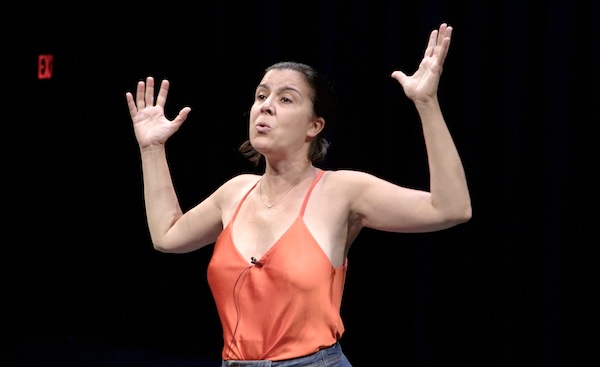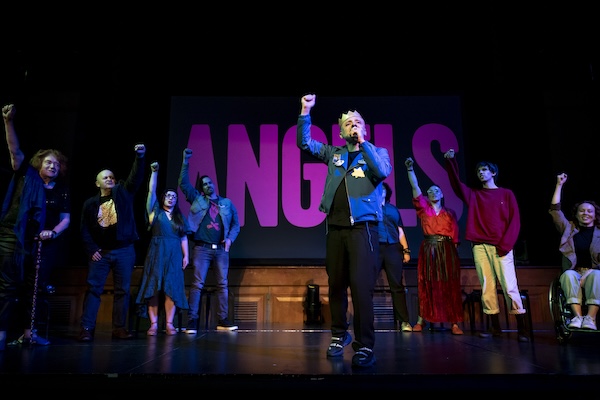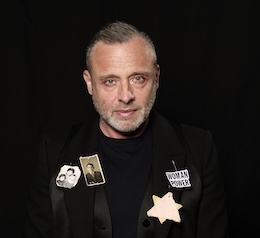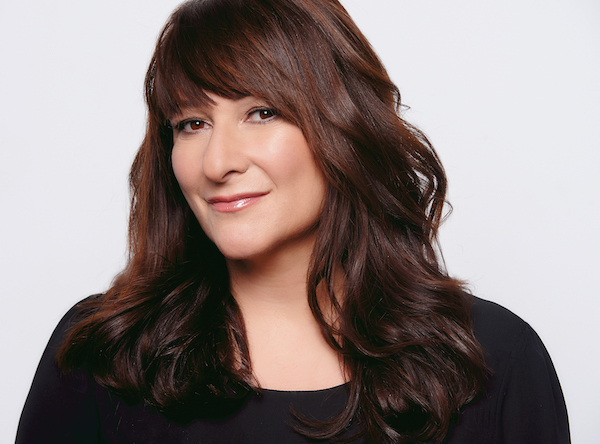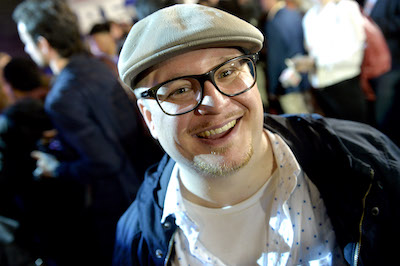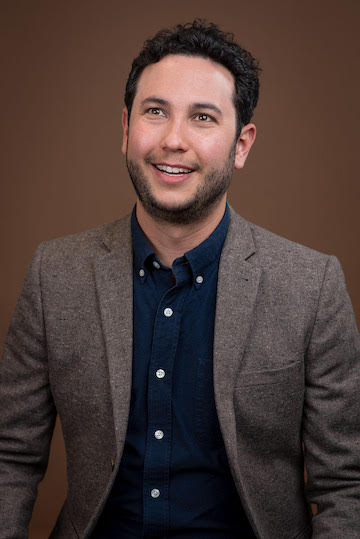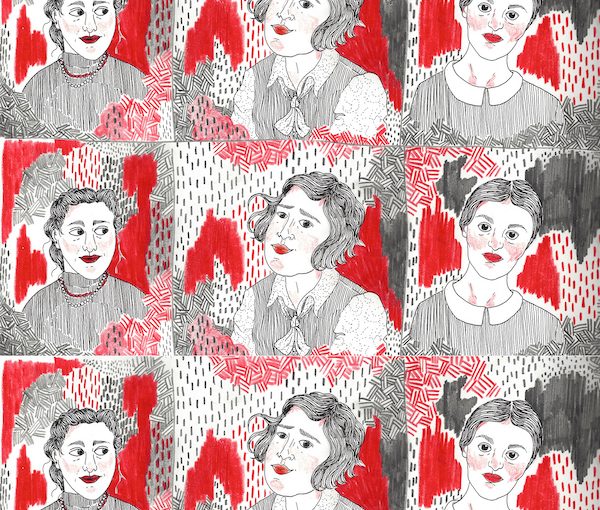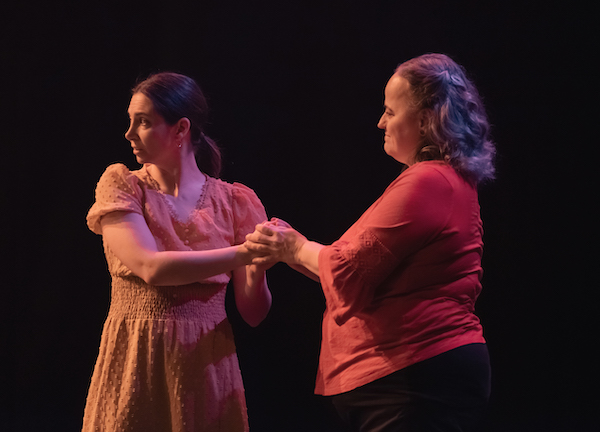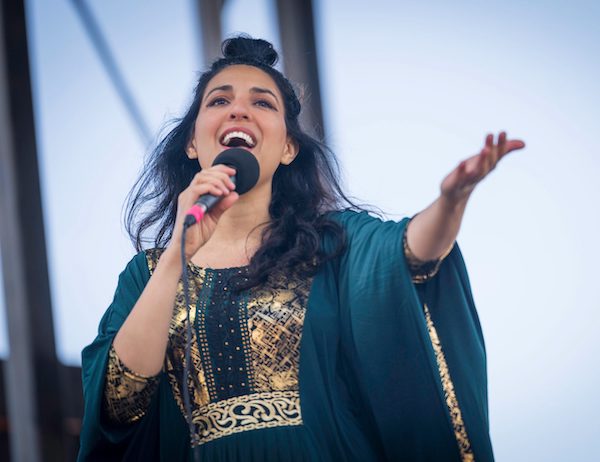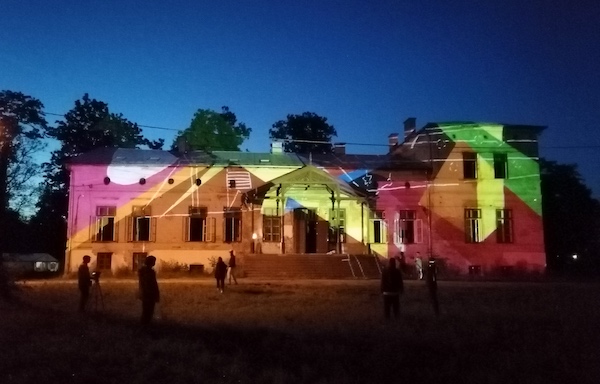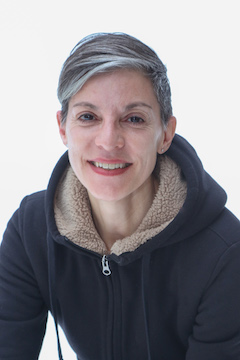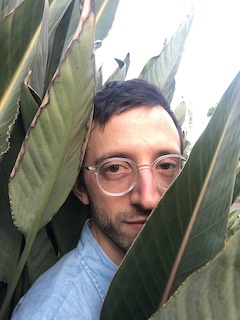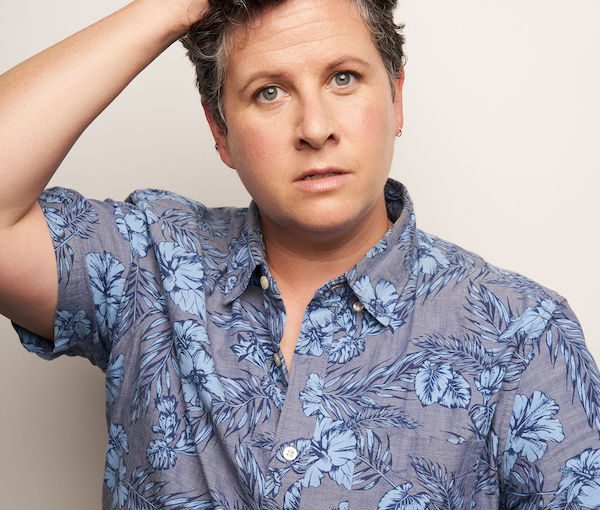Iris Bahr opens the Chutzpah! Plus Spring Edition on March 19 with Stories from the Brink: My Festive Near-Death Adventures. (photo from Chutzpah! Festival)
The Chutzpah! Plus Spring Edition kicks off with comedy, though the laughs will mix with thoughtful moments of reflection on life, family, being Jewish, and more. Live, all the way from New York, Iris Bahr will perform at the Rothstein Theatre on March 19, and Talia Reese will be on stage there March 20.
Bahr is coming to Chutzpah! with her show Stories from the Brink: My Festive Near-Death Adventures.
“I don’t want to give anything away,” Bahr told the Independent. “Let’s just say I talk about my childhood in the Bronx, where I had to lead a double life. My bacon-eating parents sent me to an Orthodox yeshivah, which, as you can imagine, was extremely stressful. I was also stung by an entire beehive. But there’s a lot more. Just come and see. I really look forward to sharing the story and coming back to the theatre. I’ve missed it. Vancouver’s one of my favourite places to perform.”
Bahr explained why she has ventured into the non-fiction realm with her performance work.
“Some very significant events happened in my life, like my mom’s stroke, which was the basis of my previous show See You Tomorrow, that I performed in Vancouver a few years ago,” she said. “I felt a need to not only share the story because it was a very dramatic story, but, even more so, as I was in the depths of caregiving for my mom [in Israel], first with a stroke and then with dementia, I realized how isolating it was, especially with a loved one with dementia. And I realized how important it was, as an artist, to create a new piece about it, because so many people undergo similar caregiving trials and tribulations. I’ve been doing that show for over three years, and the amount of people that come up to me after, thanking me and hugging me and telling me they found comfort and were also entertained and were able to find the humour thanks to the show, is truly the reason I keep doing it.
“With my current show, Stories from the Brink, I had been exploring this theme of near-death experiences for awhile, first on a podcast that I created and then near-death-themed stand-up shows, with guests sharing their own stories,” continued Bahr. “But, after Oct. 7 and my experience in Israel on that morning, which was obviously terrifying and gut-wrenching, and the rise in antisemitism and extreme anti-Israel sentiment, it was very important for me to create a show that was framed by that experience that I knew would reach people from all persuasions and attitudes. But that is only one small piece of the mosaic of the show which is also filled with a lot of other life shmutz and a lot of humour.”
For Bahr, humour is one of the ways in which she handles challenges.
“Any coping mechanism that can find light amongst the darkness is a highly effective one,” she said. “And, as someone who has always reveled in the world of humour and made it a living, it seems like an obvious go-to when dealing with dark times. It’s not even a conscious decision, it just exists as a muscle, an internal reflex.”
While See You Tomorrow was written as a long-form story, Stories from the Brink comprises vignettes. Bahr explained that See You Tomorrow “takes everyone on a ride and hyper focuses on one aspect of a story. There are some tangents there, but it really is this one event that has a clear beginning, middle and end in a finite time.”
She took a different approach with Stories from the Brink because, she said, “I have a larger theme that I’m trying to explore from many different facets. The vignettes kind of tackle that theme from different angles and ways. And, it’s also a very colourful way to put a show together. It’s like a mosaic and there’s something beautiful about a mosaic, as well. Mixes it up a bit, especially for those audience members that have short attention spans.”
But audiences don’t have to be concerned about remaining focused on Bahr, who is an accomplished storyteller. Being an engaging performer, she said, “comes from physicality to voice to emotional presence and being authentic, being in the moment. Especially with storytelling, you have to have that combination of performance and authenticity and live in the present as you are recounting these stories. Otherwise, you’re just kind of giving a clinical recap, as I tell my students. You also have to really paint a picture and create a world and you have to depict the characters, including yourself, in a very full manner.”
Reese, who went from being a comedian to being lawyer and back to being a comedian, agrees about the importance of being a good storyteller. It has served her well both as a lawyer and as a stand-up comedian.
“So, this is random, but I’m a really good summarizer,” she said. “At the law firms, my thing was summarizing case law for memoranda and stating the facts of a case succinctly but informatively in a pleading,” she explained. “I think I took that skill to joke writing. Word cutting is so important, saying just enough to get to your punchline then move on to the next.
“I also really enjoy telling stories, which is helpful in law and in comedy. I can tell a good story, ya know? That’s why I have a low tolerance for stories that dwell on unnecessary details. I zone out fast, which is why I think I was so tough on teachers. But I’m all about entertainment value. Entertain me or go away.”
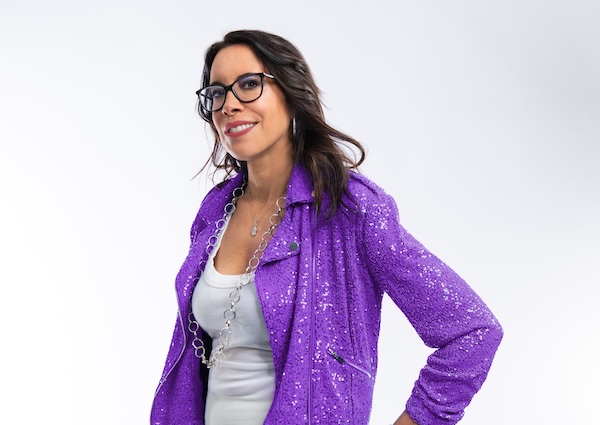
Reese shared that she was the “class clown” growing up, which meant she was “thrown out of class a lot.”
“It really depended on the teacher though,” she said. “I was just so bored in middle school and most of high school and the teachers were such characters. Getting to act in plays was a saving grace for me. I enjoyed doing Neil Simon comedies so much. I wish I was still doing that.”
In high school, Reese said, “I was all about acting in comedies and then, in college, I was the director of a comedy troupe where I wrote all the sketches and played many wacky characters. Coming out of U of Penn, I felt tremendous pressure to choose a more traditional career path, so I did the law thing. Law school was an amazing education but the all-encompassing practice was not the life I would have ever envisioned for myself, so I took a stand-up class on a lark and wound up sticking with that.”
Coming from an acting and then sketch comedy background, Reese wasn’t sure she’d be good at stand-up. “But,” she said, “it was the only way to do comedy on my own schedule, after putting the kids to bed. I’d go to open mics and talk about my life, try out jokes, build setups around lines that I thought were funny. One by one my stories would pop, or a joke would come to life, and it was the most exciting thing since college, when I wrote those sketches. I think I found my voice, and am still finding it, when I started to talk more about my actual life, telling specific stories. And it always amazes me when something so random that struck a chord in me will get an audience going too. It validates that I’m not crazy. Or that I am, but everyone else is too.”
Reese, who describes herself as Modern Orthodox, grew up in a Reform environment, “but we always had a traditional Friday night Shabbat dinner at my savta and sabbah’s house,” she said. “I think, given that my father is Israeli and of Sephardic descent, having Shabbat with my grandparents and cousins every week gave me a strong sense of Jewish identity. Also, my grandparents on my mother’s side survived the Holocaust and I have childhood memories of being in the room when they played cards with their friends, most of whom were Polish and some had numbers on their arms.
“My ‘Jewishness’ played such a strong role in forming my personal identity that it wasn’t a stretch to become more religious for me, or for my parents and siblings, who consider themselves baal teshuva as well.”
She adapts her comedy routine to the situation, she said. “I try to be respectful of religious institutions that hire me to do a night of clean comedy. I know where that line is and I’ll go right up to it and then walk it back. I like to play with an audience’s expectations. Like I talk about my two failed marriages. Then mention that I’m still in one of them. As far as getting to know my audience, at a live show, I’ll usually do some crowd work to see what I’m working with, or throw questions out up top.”
As for how she works, she said, “If I make myself laugh with a thought, I write it down. If I make my friends laugh with a story, I write it down. Then comes the development. Will this be good for the stage? Are there enough moments in the build-up that keep it funny? Like, I was thinking about how my daughter’s name is too long for how much I have to yell at her. Isabella, too many syllables, it’s exhausting. So, just abbreviate. Isabreakfast! Isabedtime! Who knows, maybe that will make it into the act!”
* * *
Spring Chutzpah! Plus
The Jewish Independent interviewed Jessica Gutteridge, artistic managing director of the Chutzpah! Festival and the Rothstein Theatre, in advance of the March 19-23 Chutzpah! Plus Spring Edition.
JI: Why has Chutzpah! decided to do a spring edition?
JG: Chutzpah! has for many years presented special programming outside of the main festival through our Chutzpah! Plus program. It has been a goal of the festival to expand this programming in order to deepen our engagement with audiences and to take advantage of artists’ touring schedules that bring them to the area throughout the year. In late winter 2024, we were delighted to offer a Winter Weekend of programming. Now, with a shorter fall festival, we are able to shift some of our programming into the spring, offering opportunities throughout the arts season for audiences to enjoy what the festival has to offer.
JI: Last fall, there was concern about the future of Chutzpah! How is it looking now?
JG: We were gratified to see the community come together to support Chutzpah! at a time of crisis, contributing generously and expressing a shared commitment to Jewish arts and culture. Adjusting our festival schedule to a shorter fall flagship festival plus our spring edition has also aided our sustainability. Important capacity-building support has come from philanthropic organizations like the Diamond Foundation and the Azrieli Foundation.
But significant challenges remain. The grant-funding landscape has not improved appreciably and, with more organizations competing for less funding, costs rising and the general economy precarious, it’s critical that we keep the momentum going. Not only is it important that the community continue to sustain us as donors and sponsors, we need audiences to “vote with their feet” and come out to festival shows and events – and bring friends. Showing support and getting to enjoy fantastic artists – it’s a win-win!
The Chutzpah! Plus Spring Edition runs March 19-23. Universus, a dance double-bill by Belle Spirale Dance Projects and Fernando Hernando Magadan is at Vancouver Playhouse March 21-22, 8 p.m.; Yamma Ensemble is at Rothstein Theatre March 21, 10 a.m., and March 22, 7 p.m. (for more about Yamma, see jewishindependent.ca/unique-in-style-rich-in-culture); and City Birds, a new project in the tradition of Americana by Tamar Eisenman and Sagit Shir, will perform music for families March 23, 11 a.m., at Rothstein Theatre. For tickets, visit chutzpahfestival.com or call 604-257-5145.

